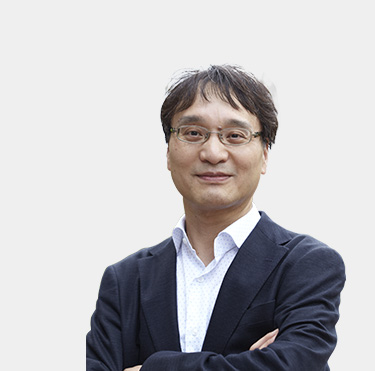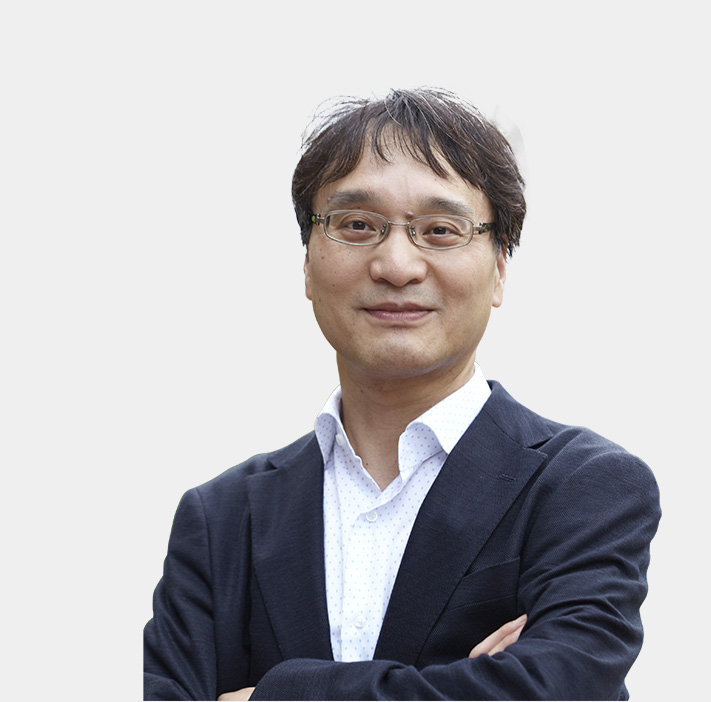02

Interview with Professor Hideki Endo
of College of Letters
This interview was conducted on July 7, 2020

How has the coronavirus pandemic changed our lives?
How did you manage your classes during the coronavirus pandemic?
Prof. Endo: Compared to conventional classes, I spent three to five
times longer preparing for online classes. For large-scale lectures, I created a handout by typing
out the content of the lecture I used to teach face-to-face. However, it is difficult to maintain
student motivation with only a typed handout, so I added anecdotes, jokes, and links to video
content distributed by public organizations as required.
Because the students live busier lives than before due to having to submit the assignments they
receive from all their of on time, it is important to put a twist on your teaching to keep them
interested in studying.
I imagine that the new students who were set to study on campus from April this year have been perplexed by the situation.
Prof. Endo: Usually students are supposed to naturally gain an
understanding of the rules of the college, the structure of classes, and so on by talking with older
students and their friends, but they have fewer opportunities for such conversation and fewer
opportunities for learning the rules.
I’ve heard that some students didn’t know that the review sheet that they fill in at the end of
each lesson is part of their grade, so I try to give in-depth explanations even about basic
information, such as points to remember for attending classes, the structure of classes, etc.
How do you think the students are coping with the current situation?
Prof. Endo: They are positively motivated in my class despite the
difficult situation caused by this sudden change.
To compensate for the reduced opportunity I have to see the students’ faces, I try to pay
meticulous attention to them ⎯ I check the internet connection of each student or, when there is an
absent student in my seminar class, I contact her/him by LINE, etc. In the large-scale classes, too,
I try to convey the message of “I am with you” during the lecture.
What will the post-corona tourism industry be like?
Due to the COVID-19
pandemic,
some domestic and international travel is still
banned.
What will happen to the tourism industry from now
on?
Prof. Endo: The tourism industry will likely depend on domestic travel where the Three Cs can be avoided for a year or two, and we will have to focus on “micro-tourism”. Micro-tourism is a type of short-range travel in which you stay in accommodations in or near your prefecture to enjoy the local area.
For all kinds of events, planners will need to create tours composed of attractive content, not tours to show tourists around. They will need to rediscover the local culture and nature that have not yet been exploited and produce tourism as “content for entertaining people.”

What does “to produce tourism as content” mean exactly?
Prof. Endo: For example, I know one sightseeing place that offers
virtual reality (VR) and mixed reality (MR) services to tourists so that they can virtually
experience the old capital that once existed there. In this case, the content derives from the
attractiveness of the local area by effectively combining reality and virtual reality.
I think you can do something interesting if you can create this kind of framework for
entertaining tourists through content creation. It is difficult to completely shift from the real to
the virtual, but I expect that the possibilities of tourism will be enhanced through a combination
of a real tourism and media content.
The creation of the content by rediscovering the
characteristics of a local area for the purpose of entertaining the tourists will also lead to
regional revitalization.
So, what kind of role do you think tourists will be expected to play
from now on?
Prof. Endo: Tourists will be required to think about how they can
offer hospitality while enjoying the trip as persons on the receiving hospitality. Examples of
offering hospitality include respecting the local culture, choosing an environmentally-friendly mode
of locomotion, and so on.
In my field, we call this kind of behavior “giving the gift of hospitality”, which is utterly
different from only receiving services as a customer. It will be more important to travel while
keeping good balance between your own pleasure and the environment/culture of the destination you
chose.
This attitude is defined as “mobility justice,” and it is something that is expected to be
demonstrated increasingly going forward. We are now expected to build a sustainable relationship
with every sightseeing places we visit by enjoying our trip there while time showing respect for the
way of living, nature, and culture of the place at the same time.
Travel restrictions will be gradually eased from now
on.
What is
Japanese society expected to do in terms of this deregulation?
Prof. Endo: We have to figure out how or in what manner the
movement of people should be eased. The social design for avoiding the Three Cs will be of great
consequence ⎯ this corresponds to the tourism architecture.
For example, when train seats have indents, people naturally sit where there are indents. We
can leverage this kind of design feature to create spaces where people naturally keep the necessary
physical distance. This kind of social design for the post-corona world will be in demand.
Opening up new possibilities as a “dreaming realist”
Could you give us some advice on how we should live in the post-corona world?
Prof. Endo: The key phrase I propose is “be a dreaming realist.”
There are two types of realists: one is “status quo type” who only accepts the current situation,
and the other is “exploit-the-real-world type” who can open up new possibilities beyond reality.
I hope my students will be the latter realist who neither just dreams nor goes along with the
status quo, but understands the real situation and thinks about the future that lies beyond.
The “exploit-the-real-world type” should be able to grasp the possibilities that certainly
exist in the real world even though they are invisible to others, like a new flower bud, even if it
means being laughed at as a “dreamer”. If you can make your way by strongly believing in
possibility, the post-corona world will appear as a new world rich with possibilities.
Are you saying that you have to understand the real situation first to be a dreaming realist?
Prof. Endo: Yes. Understand the real situation first, then
construct a question, and never let it go.
I always tell my students to be conscious of “questions specific to your peculiarities”. Never
mind if the question is ridiculed. Only the person who doesn’t let their question go even if it is
laughed at can open the door to the future, insofar as they understand the significance of that
question.
I decided to study tourism in the field of sociology when I was young, and some people laughed
at me by saying, “It must be easy to take research trips to sightseeing places”. But I didn’t care
about the criticism. No matter what you do, if you stick with it, it will take shape.
Finding the right question seems to be very difficult.
Prof. Endo: Questions are there in your ordinary life. There might
be profound questions in places you tend to overlook.
Do you know the movie called “Liar Liar”? It’s a comedy about a deceitful lawyer who one day
becomes unable to tell any lies, and his social life starts to fall apart.
After watching the movie, I thought about where the border is between what is a lie and what is
not. This is also a question. Just by watching a movie a bit more carefully you can encounter a
while range of questions.
I suppose that, if you reconsider this coronavirus pandemic, you might be able come up with
various questions about our current society.
Message
Profile
Professor Hideki Endo specializes in sociolocy of tourism,
popular culture studies, and sociological theory.
 MORE INFO
MORE INFO
Other articles





